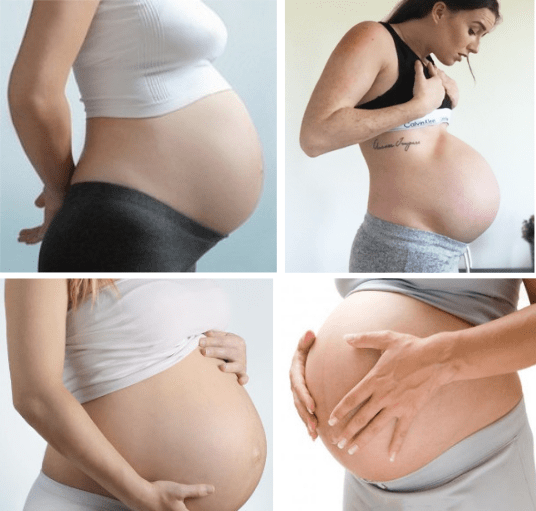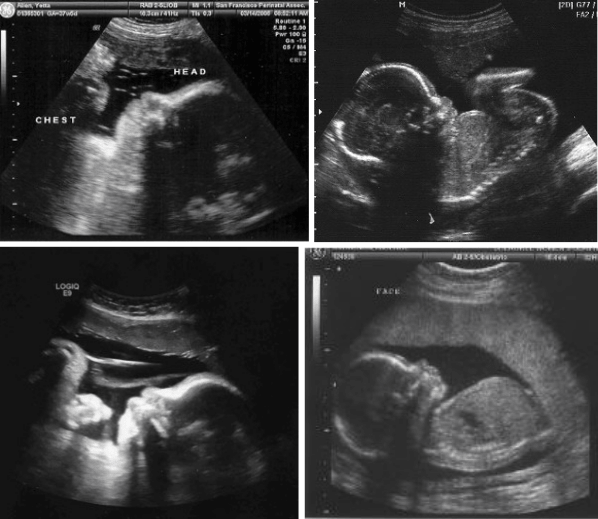If you are expecting and worried about what will happen in the 9th month of pregnancy, this article has some useful information for you.
At this stage, your pregnancy is considered full-term, and you could deliver your baby any time. The head of your baby will start to settle downwards sometime this month, deep in the pelvis and ready for birth.
It might be easier for you to breathe whenever this happens since less pressure will be on your upper abdomen. However, the increased pressure can stimulate your bladder and cause frequent urination.
Braxton Hicks contractions are going to be more frequent during this month, as the uterus is making the final preparations for delivery.
When the baby settles inside the pelvic area, he or she will hit your nerves and cause electrical thrills to run along your vagina and legs. You might feel weary and heavy or get a sudden energy burst to start decorating and cleaning.
You will also notice changes in the baby’s activity, as the uterus has limited room during the 9th month of pregnancy. Your baby could start to give jabs with the knees and feet, as well as sharp kicks beneath your ribs.
It is a good idea to monitor the kick counts from around the sixth month of pregnancy to know if he or she is okay. Record the amount of time it takes for the baby to kick, roll, swish or flutter ten times.
You should be feeling at least ten movements in two hours daily, but the same amount can come in a much shorter period.
You might begin to notice patterns, as well as a general timeframe that the baby takes to make certain movements under normal circumstances. If you pick up on any major changes in the pattern, you should consult your healthcare provider.
The Due Date
You are expected to have a due date that falls in the fortieth week of pregnancy, but bear in mind that only about four percent of women give birth on the actual due date. In most cases, women give birth within the two weeks prior to or after their given due date.
These are some early labor signs that you should know about:
- A slow trickle of fluid or a gush of water coming from your vagina
- Losing your cervical mucus plug, a gel-like, blood-stained plug inside the uterus that seals off the cervix
- Strong contractions that come nearer and nearer to each other and will last longer and longer with time
Here are some concerns women have in the 9th month of pregnancy:
Overdue pregnancy: You might start to worry about your baby being overdue if he or she does not arrive by week forty of pregnancy. However, you can rest assured that pregnancy is often overdue when the due date is miscalculated.
You need to ensure that you are getting a lot of rest because you might feel weary and heavy at this point. If your baby is really overdue, an ultrasound and/or a non-stress test will help you know if he or she is still doing well or if your doctor might have to induce labor.
Bleeding: It might be a real emergency if you are bleeding during this month. This could be very mild or heavy and accompanied by pain in the abdomen.
Bleeding in late pregnancy could be caused by placental abruption, placenta previa, or a ruptured uterus. These conditions could be very dangerous if you don’t get immediate treatment.
Other things you might be concerned about:
You could be nervous about your imminent labor and delivery. A good way to alleviate your fears is to educate yourself about the unknowns. Take some time to learn more about the three labor phases, as well as the basics of childbirth.
If you are giving birth for the first time, you may be worried that you’ll lose control throughout labor and about giving birth unexpectedly at home.
On the other hand, you may be more concerned about how to relieve childbirth pain or previous complications that you might have experienced if you have had a baby before.
Medical Visits during the 9th Month of Pregnancy
You will have to get medical check-ups weekly. During these visits, your doctor will check the cervix for opening or dilation; your weight, urine, blood pressure, and fetal heartbeat; the baby’s position and size; the height of your uterus top; the frequency of your Braxton Hicks contractions; and the swelling of your feet and ankles, especially if accompanied by abdominal pain, headaches, and visual changes.
In conclusion, the physical symptoms that you experience in the 9th month of pregnancy could lead to impatience, irritability, and mood swings. These are perfectly normal feelings, but you might be depressed if you are feeling continuously resentful, hopeless, and sad.
If this is the case, you should get help from your medical doctor, as depression symptoms during late pregnancy usually continue into the postpartum period.
Belly Pictures in 9 Month Pregnancy
Here is how a belly might look like in the 9th month of pregnancy.
Ultrasound in 9 Month Pregnancy




